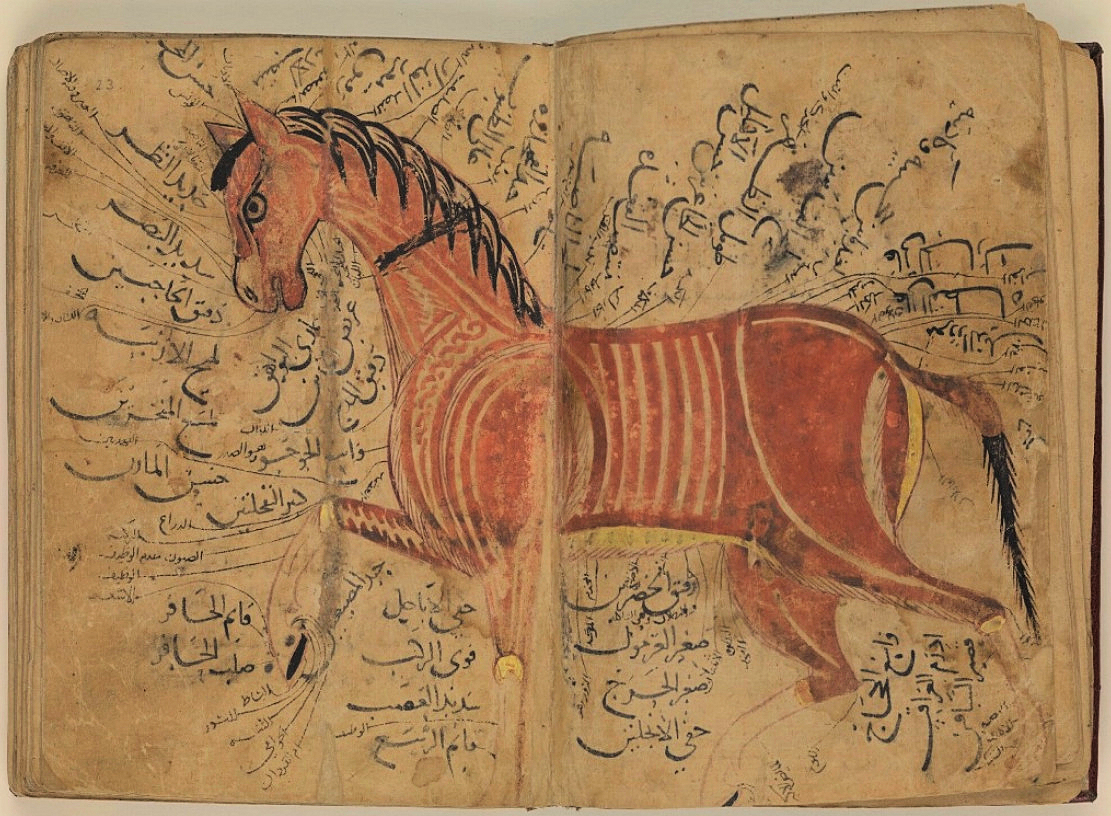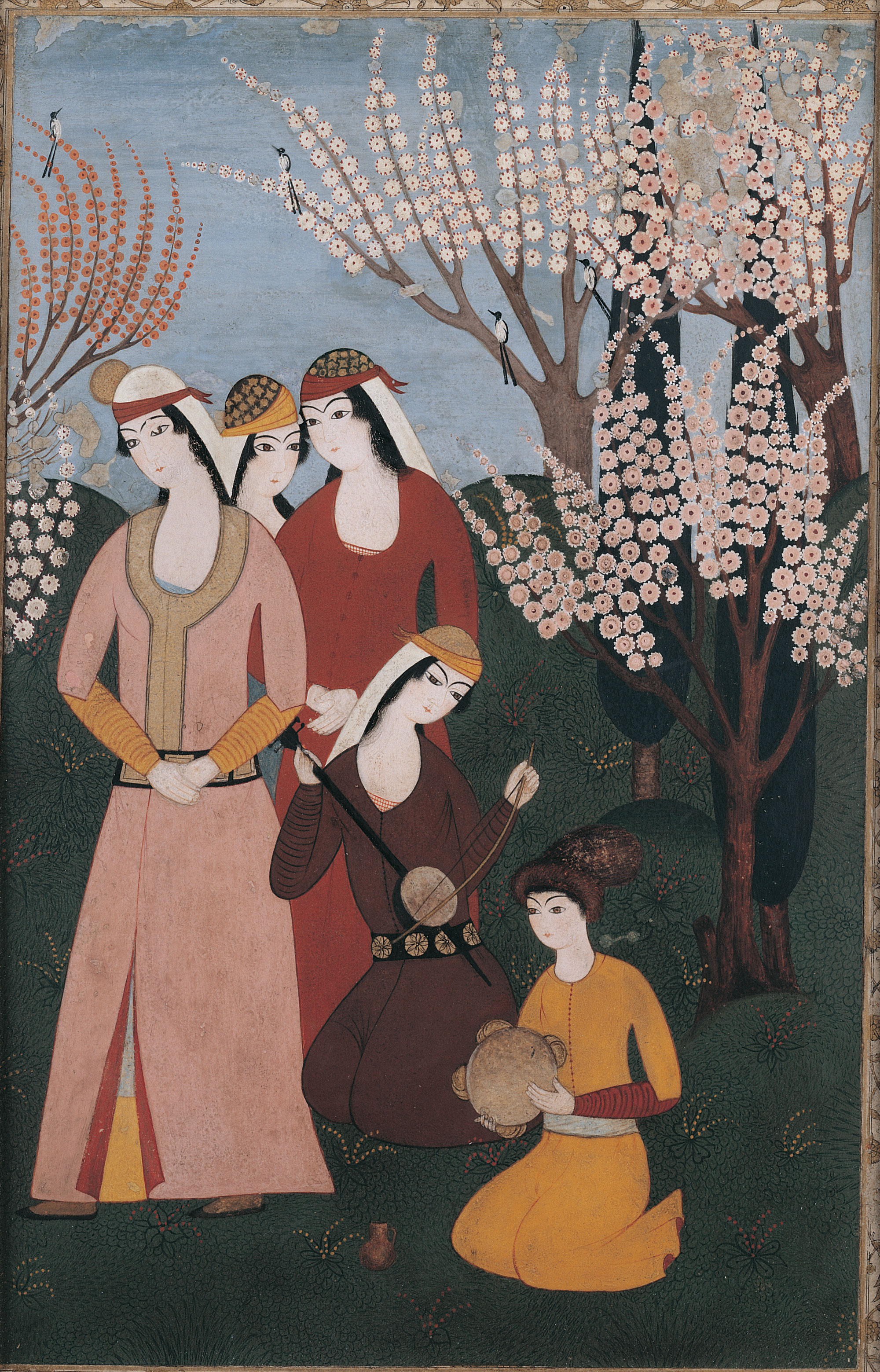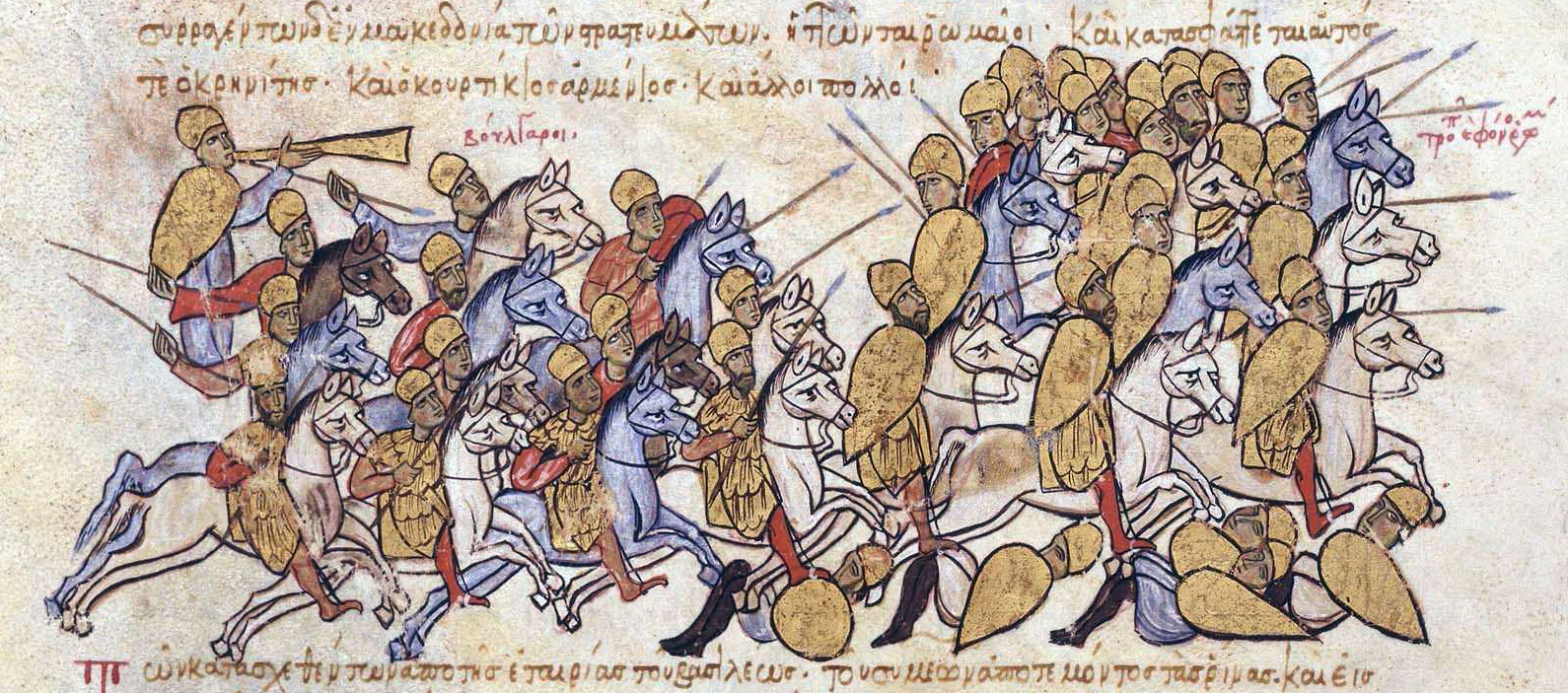|
Ibn Abi Al-Dunya
Abdullah ibn Muhammad ibn Ubaid ibn sufyan ibn Abi al-Dunya, Abu bakar, Baghdadi, known by his epithet of Ibn Abi al-Dunya (AH 207/8–281, 823–894 CE) was a Muslim scholar. During his lifetime, he served as a tutor to the Abbasid caliphs, al-Mu'tadid (861–902) and his son, al-Muktafi (878–908). Ibn Abi al-Dunya's treatise on music, ''Dhamm al-malālī'' ('Condemnation of the ''malāhī'''), is believed by Amnon Shiloah (1924–2014) to have been the first systematic attack on music from Islamic scholarship, becoming 'a model for all subsequent texts on the subject'. His understanding of ''malāhī'', as constituting not just "instruments of diversion" but also musics forbidden and for the purposes of amusement only, was an interpretation that 'guided all subsequent authors who dealt with the question of the lawfulness of music'. Works * A Maqtal al-Husayn retelling the story of the battle of Karbala * "Al-sabq wa al-ramī" on Furusiyya martial * ''Dhamm al-malālī'' - A ... [...More Info...] [...Related Items...] OR: [Wikipedia] [Google] [Baidu] |
Abbasid Caliphate
The Abbasid Caliphate ( or ; ar, الْخِلَافَةُ الْعَبَّاسِيَّة, ') was the third caliphate to succeed the Islamic prophet Muhammad. It was founded by a dynasty descended from Muhammad's uncle, Abbas ibn Abdul-Muttalib (566–653 CE), from whom the dynasty takes its name. They ruled as caliphs for most of the caliphate from their capital in Baghdad in modern-day Iraq, after having overthrown the Umayyad Caliphate in the Abbasid Revolution of 750 CE (132 AH). The Abbasid Caliphate first centered its government in Kufa, modern-day Iraq, but in 762 the caliph Al-Mansur founded the city of Baghdad, near the ancient Babylonian capital city of Babylon. Baghdad became the center of science, culture and invention in what became known as the Golden Age of Islam. This, in addition to housing several key academic institutions, including the House of Wisdom, as well as a multiethnic and multi-religious environment, garnered it a worldwide reputation as ... [...More Info...] [...Related Items...] OR: [Wikipedia] [Google] [Baidu] |
Al-Mu'tadid
Abū al-ʿAbbās Aḥmad ibn Ṭalḥa al-Muwaffaq ( ar, أبو العباس أحمد بن طلحة الموفق), 853/4 or 860/1 – 5 April 902, better known by his regnal name al-Muʿtaḍid bi-llāh ( ar, المعتضد بالله, link=no, "Seeking Support in God"), was the caliph of the Abbasid Caliphate from 892 until his death in 902. Al-Mu'tadid was the son of al-Muwaffaq, who was the regent and effective ruler of the Abbasid state during the reign of his brother, Caliph al-Mu'tamid. As a prince, the future al-Mu'tadid served under his father during various military campaigns, most notably in the suppression of the Zanj Rebellion, in which he played a major role. When al-Muwaffaq died in June 891 al-Mu'tadid succeeded him as regent. He quickly sidelined his cousin and heir-apparent al-Mufawwid; when al-Mu'tamid died in October 892, he succeeded to the throne. Like his father, al-Mu'tadid's power depended on his close relations with the army. These were first forged ... [...More Info...] [...Related Items...] OR: [Wikipedia] [Google] [Baidu] |
Al-Muktafi
Abū Muḥammad ʿAlī ibn Aḥmad ( ar, أبو محمد علي بن أحمد; 877/78 – 13 August 908), better known by his regnal name al-Muktafī bi-llāh ( ar, المكتفي بالله, , Content with God Alone), was the Caliph of the Abbasid Caliphate from 902 to 908. More liberal and sedentary than his militaristic father al-Mu'tadid, al-Muktafi essentially continued his policies, although most of the actual conduct of government was left to his viziers and officials. His reign saw the defeat of the Qarmatians of the Syrian Desert, and the reincorporation of Egypt and the parts of Syria ruled by the Tulunid dynasty. The war with the Byzantine Empire continued with alternating success, although the Arabs scored a major victory in the Sack of Thessalonica in 904. His death in 908 opened the way for the installation of a weak ruler, al-Muqtadir, by the palace bureaucracy, and began the terminal decline of the Abbasid Caliphate. Early life Ali ibn Ahmad was born in 877/8, ... [...More Info...] [...Related Items...] OR: [Wikipedia] [Google] [Baidu] |
Works
Works may refer to: People * Caddy Works (1896–1982), American college sports coach * Samuel Works (c. 1781–1868), New York politician Albums * '' ''Works'' (Pink Floyd album)'', a Pink Floyd album from 1983 * ''Works'', a Gary Burton album from 1972 * ''Works'', a Status Quo album from 1983 * ''Works'', a John Abercrombie album from 1991 * ''Works'', a Pat Metheny album from 1994 * ''Works'', an Alan Parson Project album from 2002 * ''Works Volume 1'', a 1977 Emerson, Lake & Palmer album * ''Works Volume 2'', a 1977 Emerson, Lake & Palmer album * '' The Works'', a 1984 Queen album Other uses * Microsoft Works Microsoft Works was a productivity software suite developed by Microsoft and sold from 1987 to 2009. Its core functionality included a word processor, a spreadsheet and a database management system. Later versions had a calendar application and a ..., a collection of office productivity programs created by Microsoft * IBM Works, an office suite for the IBM OS/2 op ... [...More Info...] [...Related Items...] OR: [Wikipedia] [Google] [Baidu] |
Amnon Shiloah
Amnon ( he, אַמְנוֹן ''’Amnōn'', "faithful") was, in the Hebrew Bible, the oldest son of King David and his second wife, Ahinoam of Jezreel. He was born in Hebron during his father's reign in Judah. He was the heir apparent to the throne of Israel until he was assassinated by his half-brother Absalom to avenge the rape of Absalom's sister Tamar. Biblical account Amnon's background Amnon was born in Hebron to Ahinoam and King David. As the presumptive heir to the throne of Israel, Amnon enjoyed a life of power and privilege. Rape of Tamar Although he was the heir-apparent to David's throne, Amnon is best remembered for the rape of his half-sister Tamar, daughter of David and Maachah. Despite the biblical prohibition on sexual relations between half siblings, Amnon had an overwhelming desire for her. He acted on advice from his cousin, Jonadab son of Shimeah, David's brother, to lure Tamar into his quarters by pretending to be sick and desiring her to cook a special ... [...More Info...] [...Related Items...] OR: [Wikipedia] [Google] [Baidu] |
Maqtal Al-Husayn
Maqtal al-Husayn ( ar, , , The Murder Place of Husayn) is the title of various books written by different authors throughout the centuries which narrate the story of the battle of Karbala and the death of Husayn ibn Ali. They were first written in the eighth century. Maqtal Books recounting the death of revered Muslim individuals were composed in large numbers during the eighth and ninth centuries and even today among Muslims are defined as Maqtal. List of famous Maqtals * ''Maqtal al-Husayn'', Ibn Sa'd died in 230 AH (845CE) * ''Maqtal al-Husayn'', Baladhuri died in 283 AH (892 CE) * ''Maqtal al-Husayn'', Dinawari * ''Maqtal al-Husayn'', Ibn A'tham died in 314AH (926-27 CE) Maqtals that have not survived: * ''Maqtal al-Husayn'', Abi Mikhnaf died in 157 AH (774 CE) * ''Maqtal al-Husayn of Muhammad bin Amr'' Waqidi (d. 207 or 209 AH), a mention of which book has been made by Ibn Nadim and Yaqut al-Hamawi * ''Maqtal al-Husayn'' that was written by Abu ‘Ubaydah Mu‘mmar bin Mu ... [...More Info...] [...Related Items...] OR: [Wikipedia] [Google] [Baidu] |
Furusiyya
' (; also transliterated as ) is the historical Arabic term for equestrian martial exercise. ''Furūsiyya'' “Knighthood” is a martial tradition dating back to Pre-Islamic Arabia Its main branches concerned horsemanship (including aspects of both hippology and equestrianism), horse archery and use of the lance, with the addition of swordsmanship as fourth branch in the 14th century. The term is a derivation of () "horse", and in Modern Standard Arabic means "equestrianism" in general. The term for "horseman" or "cavalier" ("knight") is ,Daniel Coetzee, Lee W. Eysturlid, ''Philosophers of War: The Evolution of History's Greatest Military Thinkers'' (2013)p. 59 60, 63. "Ibn Akhī Hizām" ("the son of the brother of Hizam", viz. a nephew of Hizam Ibn Ghalib, Abbasid commander in Khurasan, fl. 840). which is also the origin of the Spanish rank of '' alférez''.The Perso-Arabic term for "''Furūsiyya'' literature" is or . is also described as a small encyclopedia about horse ... [...More Info...] [...Related Items...] OR: [Wikipedia] [Google] [Baidu] |
Islamic Golden Age
The Islamic Golden Age was a period of cultural, economic, and scientific flourishing in the history of Islam, traditionally dated from the 8th century to the 14th century. This period is traditionally understood to have begun during the reign of the Abbasid caliph Harun al-Rashid (786 to 809) with the inauguration of the House of Wisdom in Baghdad, the world's largest city by then, where Muslim scholars and polymaths from various parts of the world with different cultural backgrounds were mandated to gather and translate all of the known world's classical knowledge into Aramaic and Arabic. The period is traditionally said to have ended with the collapse of the Abbasid caliphate due to Mongol invasions and the Siege of Baghdad in 1258. A few scholars date the end of the golden age around 1350 linking with the Timurid Renaissance, while several modern historians and scholars place the end of the Islamic Golden Age as late as the end of 15th to 16th centuries meeting with the Isl ... [...More Info...] [...Related Items...] OR: [Wikipedia] [Google] [Baidu] |
Islamic Music
Islamic music may refer to religious music, as performed in Islamic public services or private devotions, or more generally to musical traditions of the Muslim world. The heartland of Islam is the Middle East, North Africa, the Horn of Africa, West Africa, Iran, Central Asia, and South Asia. Due to Islam being a multi-ethnic religion, the musical expression of its adherents is vastly diverse. Indigenous traditions of various part have influenced the musical styles popular among Muslims today. The word "music" in Arabic, the language of Islam, (''mūsīqā'' ) is defined more narrowly than in English or some other languages, and "its concept" was at least originally "reserved for secular art music; separate names and concepts belonged to folk songs and to religious chants".) At least one scholar (Jacob M. Landau) makes the generalization about Islamic music that it "is characterized by a highly subtle organization of melody and rhythm", that "the vocal component predominates over ... [...More Info...] [...Related Items...] OR: [Wikipedia] [Google] [Baidu] |
894 Deaths
__NOTOC__ Year 894 ( DCCCXCIV) was a common year starting on Tuesday (link will display the full calendar) of the Julian calendar. Events By place Byzantine Empire * Byzantine–Bulgarian War: Stylianos Zaoutzes, leading minister and '' basileopator'', convinces Emperor Leo VI (the Wise) to move the Bulgarian market from Constantinople to Thessaloniki. This affects the commercial importance of Bulgarian trade. Simeon I, ruler (''khan'') of the Bulgarian Empire, mobilizes his Bulgarian forces and invades Byzantine territory, ravaging the countryside. Europe * Spring – King Arnulf of Carinthia invades Italy at the head of an East Frankish expeditionary army, joining up with the deposed king Berengar I at Verona. He conquers Brescia after little resistance, and sacks Bergamo after a one-month siege. The cities of Milan and Pavia open their doors to Arnulf. Emperor Guy III escapes from Pavia, to hide in the mountains of Spoleto (Umbria). * March – Arnulf ... [...More Info...] [...Related Items...] OR: [Wikipedia] [Google] [Baidu] |
Year Of Birth Unknown
A year or annus is the orbital period of a planetary body, for example, the Earth, moving in its orbit around the Sun. Due to the Earth's axial tilt, the course of a year sees the passing of the seasons, marked by change in weather, the hours of daylight, and, consequently, vegetation and soil fertility. In temperate and subpolar climate, subpolar regions around the planet, four seasons are generally recognized: spring (season), spring, summer, autumn and winter. In tropics, tropical and subtropics, subtropical regions, several geographical sectors do not present defined seasons; but in the tropics#Seasons and climate, seasonal tropics, the annual wet season, wet and dry seasons are recognized and tracked. A calendar year is an approximation of the number of days of the Earth's orbital period, as counted in a given calendar. The Gregorian calendar, or modern calendar, presents its calendar year to be either a common year of 365 days or a leap year of 366 days, as do t ... [...More Info...] [...Related Items...] OR: [Wikipedia] [Google] [Baidu] |
Year Of Birth Uncertain
A year or annus is the orbital period of a planetary body, for example, the Earth, moving in its orbit around the Sun. Due to the Earth's axial tilt, the course of a year sees the passing of the seasons, marked by change in weather, the hours of daylight, and, consequently, vegetation and soil fertility. In temperate and subpolar regions around the planet, four seasons are generally recognized: spring, summer, autumn and winter. In tropical and subtropical regions, several geographical sectors do not present defined seasons; but in the seasonal tropics, the annual wet and dry seasons are recognized and tracked. A calendar year is an approximation of the number of days of the Earth's orbital period, as counted in a given calendar. The Gregorian calendar, or modern calendar, presents its calendar year to be either a common year of 365 days or a leap year of 366 days, as do the Julian calendars. For the Gregorian calendar, the average length of the calendar y ... [...More Info...] [...Related Items...] OR: [Wikipedia] [Google] [Baidu] |
.jpg)







